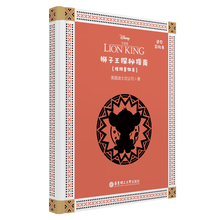月亮升起来
Spell of the Rising Moon
[美国]皮特·斯坦哈特/Peter Steinhart
皮特·斯坦哈特(1785—1851),美国博物学家,作家。他曾是以奥特朋(1785—1851,美国鸟类学家、画家及博物学家)命名的杂志的编辑及专栏作家,并且一干就是20年。他的作品曾被很多报刊采用,如:《纽约时报》《洛杉矶时报》《琼斯妈妈》等。
There is a hill near my home that I often climb at night. The noise of the city is a far-off murmur. In the hush of dark I share the cheerfulness of crickets and the confidence of owls. But it is the drama of the moonrise that I come to see. For that restores in me a quiet and clarity that the city spends too freely.
From this hill I have watched many moons rise. Each one had its own mood. There have been broad, confident harvest moons in autumn; shy, misty moons in spring; lonely, winter moons rising into the utter silence of an ink-black sky and smoke-smudged orange moons over the dry fields of summer. Each, like fine music, excited my heart and then calmed my soul.
Moon gazing is an ancient art. To prehistoric hunters the moon overhead was as unerring as heartbeat. They knew that every 29 days it become full-bellied and brilliant, then sickened and died, and then was reborn. They knew the waxing moon appeared larger and higher overhead after each succeeding sunset. They knew the waning moon rose later each night until it vanished in the sunrise. To have understood the moon’s patterns from experience must been a profound thing.
But we, who live indoors, have lost contact with the moon. The glare of street lights and the dust of pollution veil the night sky. Though men have walked on the moon, it grows less familiar. Few of us can say when the moon will rise tonight.
Still, it tugs at our minds. If we unexpectedly encounter the full moon, huge and yellow over the horizon, we are helpless but to stare back at its commanding presence. And the moon has gifts to bestow upon those who watch.
I learned about its gifts one July evening in the mountains. My car had mysteriously stalled, and I was stranded and alone. The sun had set, and I was watching what seemed to be the bright-orange glow of a forest fire beyond a ridge to the east. Suddenly, the ridge itself seemed to burst into flame. Then, the rising moon, huge and red and grotesquely mishappen by the dust and sweat of the summer atmosphere, loomed up out of the woods.
Distorted thus by the hot breath of earth, the moon seemed ill-tempered and imperfect. Dogs at nearby farmhouses barked nervously, as if this strange light had wakened evil spirits in the weeds.
But as the moon lifted off the ridge it gathered firmness and authority. Its complexion changed from red, to orange, to gold, to impassive yellow. It seemed to draw light out of the darkening earth, for as it rose, the hills and valleys below grew dimmer. By the time the moon stood clear of the horizon, full chested and round and the color of ivory, the valleys were deep shadows in the landscape. The dogs, reassured that this was the familiar moon, stopped barking. And all at once I felt a confidence and joy close to laughter.
The drama took an hour. Moonrise is slow and serried with subtleties. To watch it, we must slip into an older, more patient sense of time. To watch the moon move inexorably higher is to find an unusual stillness within ourselves. Our imaginations become aware of the vast distances of space, the immensity of the earth and huge improbability of our own existence. We feel small but privileged.
Moonlight shows us none of life’s harder edges. Hillsides seem silken and silvery, the oceans still and blue in its light. In moonlight we become less calculating, more drawn to our feelings.
And odd things happen in such moments. On that July night, I watched the moon for an hour or two, and then got back into the car, turned the key in the ignition and heard the engine start, just as mysteriously as it had stalled a few hours earlier. I drove down from the mountains with the moon on my shoulder and peace in my heart.
I return often to the rising moon. I am draw especially when events crowd ease and clarity of vision into a small corner of my life. This happens often in the fall. Then I go to my hill and await the hunter’s moon, enormous and gold over the horizon, filling, the night with vision.
An owl swoops from the ridge top, noiseless but bright as flame. A cricket shrills in the grass. I think of poets and musicians. Of Beethoven’s “Moonlight Sonata” and of Shakespeare, whose Lorenzo declaims in The Merchant of Venice, “How sweet the moonlight sleeps upon this bank! /Here will we sit and let the sounds of music/Creep in our ears.” I wonder if their verse and music, like the music of crickets, are in some way voices of the moon. With such thoughts, my citified confusions melt into the quiet of the night.
Lovers and poets find deeper meaning at night. We are all apt to pose deeper questions—about our origins and destinies. We indulge in riddles, rather than in the impersonal geometries that govern the daylight world. We become philosophers and mystics.
At moonrise, as we slow our minds to the pace of the heavens, enchantment steals over us. We open the vents of feeling and exercise parts of our minds that reason locks away by day. We hear, across the distances, murmurs of ancient hunter and see anew the visions of poets and lovers of long ago.
有一座小山就坐落在我家附近,我常常会在夜间去爬山。到了山上,城市里的嘈杂就会变成远方的低语。在安静的黑夜里,我能够感觉到蟋蟀的欢乐和猫头鹰的自信。不过,看月出才是我爬山的目的,重新找回在城市中轻易就迷失的那种宁静与纯真。
在小山上,我看过很多次月出。每次月出都是各有风情,不尽相同。秋日里,圆圆的月亮露出丰收的自信;春风中,月亮灰蒙蒙地表达着羞涩;冬日里,冰轮般的月亮孤独地悬在漆黑的空中;夏日中,橘黄色的月亮朦朦胧胧地俯瞰着干燥的田野。每一种月亮都似精美的音乐,感动我的心灵,抚慰我的灵魂。
赏月是一种古老的艺术。远古时代的猎人,对空中月亮的了解如同知晓自己的心跳一样,丝毫不差。他们熟悉29天中的每个月亮,月亮会由明亮饱满变得萎缩,直至消失,然后再次复活;他们知道,月盈期间,每经日落,头顶的月亮就会显得更高更大;他们还知道,月亏期间,月出一日更比一日迟,直到有一天,太阳升起时仍不见月亮的踪迹。古人能根据经验知道到月亮的行踪变化,真是造诣颇深的事情。
但生活在室内的我们,已经失去了和月亮的联系。城市耀眼的街灯、玷污的烟尘遮蔽了原本晴朗的夜空。人类虽已在月亮上迈出了第一步,反而对月亮变得更加陌生。没有几人能说得出今晚月亮何时升起。
无论如何,月亮仍然牵挂着我们的心。如果不经意间看到刚刚升起的、大大的、黄澄澄的满月,谁都会情不自禁地停下来,一睹她高贵的姿容。而月亮也会赐予观看她的人礼物。
在七月山间的一个夜晚,我得到了她的礼物。车子莫名其妙地熄了火,我一个人束手无策地困在山中。太阳已经落山了,我看到东边山头闪出一团橘红色的光线,好像森林着火一样。刹那间,山头也被火焰吞噬。过了一会儿,月亮突然从密林中探出涨红的大大的脸,夏日空气中弥漫的尘雾与汗气,使月亮显得有些荒谬的变形。
大地灼热的呼吸扭曲了它,月亮变得格外暴躁,不再完美。不远处,农舍里的狗紧张地乱叫起来,好像这奇怪的光亮唤醒了野草中的魔鬼。
然而,随着月亮慢慢爬上山头,它聚合了全身的坚定与威严;它的面孔也从红变成了橘黄,又变成金色,最后成为淡淡的黄。月亮不断地上升,下面的丘陵山谷逐渐暗淡朦胧,好像大地的光亮让月亮渐渐吸走了似的。待到皓月当空,圆圆的月亮洒下象牙般乳白的清辉,下面的山谷在这样的风景里,形成了一片片幽深的阴影。这时,那些乱叫的狗才打消了疑虑——原来那团光是它们熟悉的月亮——停止了吠叫。在那一刻,我忽然觉得信心十足,心情欢畅,禁不住笑了起来。
整整一个小时,我都沉浸在这奇美的景观里。月出是缓缓而又充满微妙的。要想欣赏月出,我们得退回到过去的时代,带着一种对时间有耐心的心态去欣赏。看着月亮毫无顾忌地不断攀升,我们能找到内心少有的宁静。我们的想象力能让我们感到宇宙的广阔和大地的无限,忘却自己的存在,感觉自我的渺小,却又深感自己的独特。
月光从不向我们展示生活的艰辛。山坡好像在银色月光下披上了柔和的轻纱。在月光的照耀下,海水显得碧蓝而静谧。沉浸在月光中,我们不再像白天那般精于算计,而是沉浸在自我内心的情感之中。
正当我陶醉于月色之美时,奇妙的事情发生了。就是在七月的那个夜晚,我看了一两个小时的月景后,回到车里,再次转动钥匙发动汽车时,发动机出人意料地响了起来,和几个小时前熄火时一样蹊跷而神秘。我开着车沿着山路回家,月光洒在肩上,心中满是平静。
从那以后,我常常会到山上看月出。当成堆的事务渐渐平息,生活逐渐明朗,这时常发生在秋季,我就会爬上那座小山。我等着猎人之月的出现,等着金色丰盈的月亮俯照大地,给黑夜带来光明。
一只猫头鹰静悄悄地从山头俯冲而下,却在月色下如火光闪过。一只蟋蟀在草丛中尖声歌唱,我不由得想起了诗人和音乐家——贝多芬的《月光奏鸣曲》和莎士比亚笔下的《威尼斯商人》中洛伦佐的话:“月光沉睡在这岸边多么迷人!我们要坐在这里,让音乐之声潜入我们的耳内。”我不清楚他们的诗篇与音乐是否与蟋蟀的歌声相似,在某种程度上可以算做月的声音。想到这些,城市生活带给我的昏乱心绪,便在夜的宁静中消失了。
恋人和诗人在夜里能寻找到更深奥的生活意义。其实,我们都爱问一些深奥的问题——关于我们的祖先、我们的命运。我们只想纵容这些永远找不到答案的谜团,不喜欢那些主导着白天世界的、没有情感的几何教科书。在夜里,我们都成为哲学家和神秘家。
当月亮升起之时,我们放慢思想,让它追随天堂的脚步。不经意间,一种魔力就会遍布全身。我们会敞开情感之门,让白天被理智束缚的那部分思绪自由奔涌。我们能跨越遥远的时空,听远古猎人的细语,看久远时代恋人与诗人们眼中的世界。
心灵小语
看着月亮毫无顾忌地不断攀升,我们能找到内心少有的宁静。我们的想象力能让我们感到宇宙的广阔和大地的无限,忘却自己的存在,感觉自我的渺小,却又深感自己的独特。
词汇笔记
词汇笔记
murmur ['m·:m·] n. 低语,低声的怨言
The murmur swelled into a roar.
窃窃私语的声音变大形成一片喧哗。
succeeding [s·k'si:di·] adj. 接连的;随后的
And they pass the skill down to each succeeding generation.
他们把这种技巧也遗传给下一代。
authority [·:'θ·riti] n. 权力,权威,当局
She has the authority to make important decisions in the office.
她在这个办公室中有权力作出重要的决定。
vision ['vi··n] n. 视觉,先见之明,光景,视力,眼力
You have perfect color vision!
你有完美的色彩感!
小试身手
每一种月亮都似精美的音乐,感动我的心灵,抚慰我的灵魂。
月光从不向我们展示生活的艰辛。
其实,我们都爱问一些深奥的问题——关于我们的祖先、我们的命运。
But we, who live indoors, have lost contact with the moon.
contact with:与……接触,与……联系
Dogs at nearby farmhouses barked nervously, as if this strange light
had wakened evil spirits in the weeds.
as if:好像
……
展开










